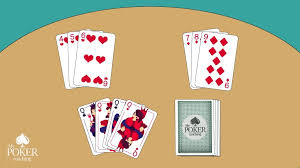Rummy Rules Calling Rummy, is a classic card game with many variations, played worldwide for its engaging mix of strategy and luck. One of the most exciting moments in Rummy is “calling Rummy” or “going out,” which signifies that a player has successfully completed the objective of the game. This article explores the rules for calling Rummy, the process, and the etiquette players should follow.
The Objective of Rummy
The primary goal in Rummy is to form valid sets and runs from the cards in your hand and be the first to go out by doing so. A set is a group of three or four cards of the same rank but different suits, while a run is a sequence of three or more consecutive cards of the same suit. Players aim to reduce the number of unmatched cards, known as “deadwood,” and eventually call Rummy to win the game.
Rules for Calling Rummy
The rules for calling Rummy can vary depending on the specific variant being played. However, the basic principles remain consistent across most versions:
- Forming Melds:
- A player must arrange their cards into valid sets and/or runs. In most Rummy games, a minimum of two melds is required to call Rummy, including at least one run. Some variants also require a pure sequence (a run without jokers or wildcards).
- No Deadwood or Low Deadwood:
- In many Rummy games, a player can only call Rummy if they have no deadwood left in their hand. In some variants, a player is allowed a small amount of deadwood, but it should be below a certain threshold (usually 10 points or less).
- Declaration:
- Once a player has formed the necessary melds, they declare Rummy by placing all their cards face-up on the table. This act of laying down the cards signifies that the player believes they have met the winning criteria.
- Verification:
- After a player calls Rummy, other players review the cards to ensure that the melds are valid. If any melds are found invalid, the player may face penalties, and the game continues.
- Scoring:
- If the declaration is valid, the player wins the round. The scores are then calculated based on the value of deadwood left in the other players’ hands. The winner receives points equal to the total value of all the other players’ deadwood, or, in some variations, the game ends and scores are tallied to determine the overall winner.
Etiquette and Considerations
Calling Rummy is an exciting moment, but players should adhere to certain etiquette and considerations:
- Honesty and Integrity:
- Players should always declare Rummy with complete and valid melds. If a player inadvertently or intentionally declares Rummy with invalid melds, it can lead to penalties and spoil the game experience for others.
- Timing:
- Players should be mindful of the timing of their declaration. It’s good etiquette to call Rummy only when certain that all melds are valid and that the hand meets the winning criteria. Premature or incorrect declarations can cause confusion and disrupt the flow of the game.
- Sportsmanship:
- Winning or losing with grace is essential in Rummy. Congratulating the winner and acknowledging a well-played hand fosters a positive atmosphere and enhances the enjoyment of the game for all participants.
- Clarity in Communication:
- When declaring Rummy, the player should clearly and unambiguously state their intention, either verbally or by placing all their cards face-up. This helps avoid any misunderstandings or disputes.
Conclusion
Calling Rummy is the culmination of strategy and skill in the game, marking a player’s success in forming the necessary melds and minimizing deadwood. Understanding the rules and etiquette around this crucial aspect of Rummy ensures a fair and enjoyable experience for everyone involved. Whether playing casually with friends or in a more competitive setting, mastering the art of calling Rummy can significantly enhance your gameplay and appreciation of this classic card game.




